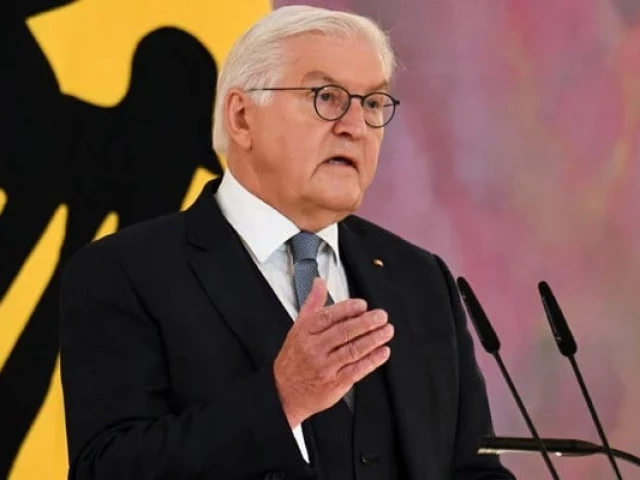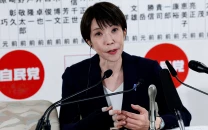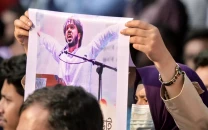German president dissolves parliament
Sets Feb 23 for snap election, emphasises the need for 'political stability'

German President Frank-Walter Steinmeier dissolved parliament on Friday and confirmed the expected February date for an early general election after the collapse of Olaf Scholz's government last month.
Scholz's coalition was brought down by internal fights about how to revive Europe's largest economy but a deadly car-ramming attack at a Christmas market last week has renewed the country's heated debates over security and immigration.
Confirming the February 23 date for the election, Steinmeier emphasised the need for "political stability" and appealed for the campaign to be "conducted with respect and decency".
He also said that he wanted "the campaign to be conducted with fair and transparent means" and warned of the dangers of "foreign influence... which is particularly intense on X," the social media platform owned by billionaire Elon Musk.
"Hatred and violence must have no place in this election campaign, nor denigration or intimidation... all this is poison for democracy," Steinmeier said.
Scholz's Social Democrats are lagging badly in polls on just 15 percent.
His unruly three-party coalition collapsed on November 6, the day Donald Trump won re-election to the White House.
That led Scholz to call a confidence vote last week which he lost, paving the way for an early election.
He will remain in office as a caretaker chancellor until a new government is formed, which could take several months after the election.
In his speech, Steinmeier reminded political parties and voters of the host of challenges the next government will face given the "economically unstable situation... the wars in the Middle East and Ukraine" as well as debates over immigration and climate change.
On security, both the CDU and SPD want to keep helping Ukraine in its war with Russia and spend two percent of GDP or more on Germany's defence.
While the CDU programme remains vague on what weapons to ship to Kyiv, the SPD opposes sending long-range missiles because "Germany and NATO must not themselves become parties to the war".
On the thorny issue of how to boost Germany's ailing economy, both parties want to reinvigorate the "Made in Germany" brand, boost investment and upgrade crumbling infrastructure.
On climate and energy, the SPD has vowed to promote renewables, e-mobility and an ambitious green hydrogen initiative, while the CDU said it would reverse the planned phase-out of combustion engine vehicles



















COMMENTS
Comments are moderated and generally will be posted if they are on-topic and not abusive.
For more information, please see our Comments FAQ